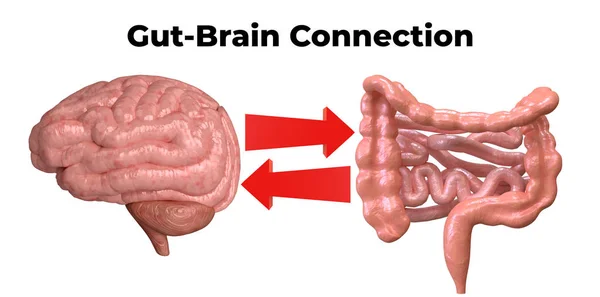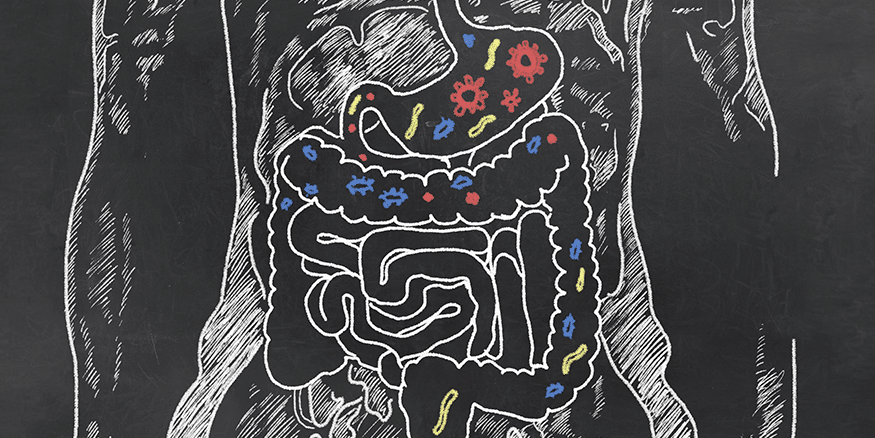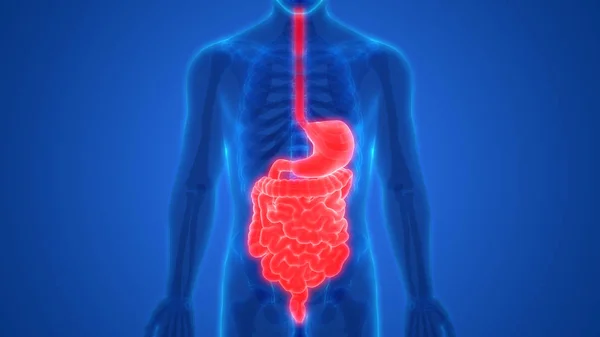
The link between gut health and overall wellness
Welcome to the gut-wrenching world of gut health! You may be thinking, "Why do I care about my gut?" Well, let me tell you, your gut is like the control center of your body. It's responsible for digesting your food, absorbing nutrients, and keeping your immune system in check. And when your gut is out of whack, it can affect your overall wellness in more ways than you may realize.
The gut-brain connection is one of the most fascinating and underappreciated aspects of gut health. Did you know that your gut has its own nervous system, often referred to as the "second brain"? It's true! And when your gut is unhappy, it can send signals to your brain, leading to conditions such as anxiety and depression. But don't worry, it's not all doom and gloom. By taking care of your gut, you can improve not only your physical health, but your mental health too.
But it's not just your brain that's affected by your gut health, it's also your skin, liver, heart and many other aspects of your body. In this article, we're going to dive into the gut-wrenching world of gut health and explore the ways in which it affects your overall wellness. From the gut-brain connection to the gut-skin connection, we'll cover it all. So grab a probiotic-rich yogurt and let's get started!
The importance of a healthy gut

We've established that your gut is like the control center of your body, but what does that really mean? A healthy gut is essential for maintaining a strong immune system, preventing chronic diseases, and keeping your overall wellness in check.
Let's start with the immune system. Your gut is home to trillions of microorganisms, collectively known as the gut microbiome. These microorganisms play a crucial role in maintaining a healthy immune system. When the gut microbiome is out of balance, it can lead to a weakened immune system, making you more susceptible to infections and illnesses.
A healthy gut also plays a role in preventing chronic diseases. Research has shown that an imbalance in the gut microbiome can contribute to conditions such as obesity, diabetes, and even cancer. By maintaining a healthy gut, you can reduce your risk of developing these chronic diseases.
But it's not just physical health that's impacted by gut health. Mental health is also closely linked to gut health. The gut-brain connection, as we discussed earlier, is a two-way street. An imbalance in the gut microbiome can lead to conditions such as anxiety and depression, while maintaining a healthy gut can improve your mental well-being.
In summary, a healthy gut is essential for maintaining a strong immune system, preventing chronic diseases, and keeping your overall wellness in check. By taking care of your gut, you can improve not only your physical health, but your mental health too. So, let's give
The gut-brain connection 

We all know the saying "trust your gut," but what does that really mean? Well, as it turns out, your gut has its own nervous system, often referred to as the "second brain." This gut-brain connection is a two-way street, meaning that the state of your gut can affect your brain, and vice versa.
One of the most fascinating aspects of the gut-brain connection is the impact of gut health on mental health. Research has shown that an imbalance in the gut microbiome can lead to conditions such as anxiety and depression. In fact, studies have found that people with depression and anxiety often have an imbalance in their gut microbiome.
But how does this happen? It all comes down to the gut-brain axis, a complex communication network between the gut and the brain. The gut-brain axis is made up of various pathways, including the nervous system, the immune system, and hormones. When the gut microbiome is out of balance, it can disrupt the communication between the gut and the brain, leading to mental health issues.
So, what can you do to improve the gut-brain connection? The key is to maintain a healthy gut. This can be achieved by following a healthy diet, rich in fermented foods and probiotics, reducing stress levels, and getting enough sleep.
In summary, the gut-brain connection is a two-way street, meaning that the state of your gut can affect your brain, and vice versa. Research has shown that an imbalance in the gut microbiome can lead to conditions such as anxiety and depression, and maintaining a healthy gut is essential for improving the gut-brain connection.
The gut microbiome 

The gut microbiome, also known as gut bacteria, is a diverse community of microorganisms that live in the digestive tract. These microorganisms play a crucial role in maintaining a healthy gut and overall wellness. But, what exactly is the gut microbiome, and why is it so important?
The gut microbiome is made up of trillions of microorganisms, including bacteria, viruses, and fungi. These microorganisms play a crucial role in the digestion and absorption of nutrients, the production of hormones and neurotransmitters, and the maintenance of the immune system.
When the gut microbiome is in balance, it helps to protect the body from harmful pathogens and promotes overall health. But when it's out of balance, it can lead to a variety of health issues such as obesity, diabetes, and even cancer.
So, how do we maintain a healthy gut microbiome? The key is to eat a diet rich in fermented foods and probiotics. Fermented foods, such as yogurt, kimchi, and sauerkraut, contain live bacteria that can help to repopulate the gut microbiome. Probiotics, on the other hand, are live microorganisms that can be taken in supplement form to promote a healthy gut.
In summary, The gut microbiome is a diverse community of microorganisms that live in the digestive tract, playing a crucial role in maintaining a healthy gut and overall wellness. When the gut microbiome is in balance, it helps to protect the body from harmful pathogens and promotes overall health. To maintain a healthy gut microbiome, it's essential to eat a diet rich in fermented foods and probiotics.
The gut-skin connection

You may be wondering what your gut has to do with your skin. Well, let me tell you, the gut-skin connection is a real thing! Your gut and skin are connected in more ways than you may realize.
Research has shown that an imbalance in the gut microbiome can lead to skin conditions such as acne and eczema. When the gut microbiome is out of balance, it can lead to inflammation throughout the body, including the skin. This inflammation can lead to the development of skin conditions.
But it's not just inflammation that's the problem. The gut microbiome also plays a role in the production of certain hormones that can affect the skin. For example, an imbalance in the gut microbiome can lead to an overproduction of the hormone sebum, which can contribute to the development of acne.
So, how do we improve the gut-skin connection? By maintaining a healthy gut! A diet rich in fermented foods and probiotics can help to promote a healthy gut microbiome, and in turn, improve the health of your skin.
In summary, The gut-skin connection is a real thing! Research has shown that an imbalance in the gut microbiome can lead to skin conditions such as acne and eczema, by promoting inflammation and affecting the production of certain hormones. To improve the gut-skin connection, it's essential to maintain a healthy gut by eating a diet rich in fermented foods and probiotics.
The gut-liver connection 

Your gut and liver are like two peas in a pod, they may not seem related but they work together in harmony to keep you healthy. The gut-liver connection is an often-overlooked aspect of gut health, but it's just as important as the gut-brain and gut-skin connections.
Your liver is responsible for many important functions in the body, including detoxification. The gut microbiome plays a crucial role in liver function by breaking down and eliminating toxins from the body. When the gut microbiome is out of balance, it can lead to a build-up of toxins in the liver, which can contribute to liver disease.
But it's not just toxins that the gut microbiome affects, it also plays a role in the production of bile. Bile is a liquid produced by the liver that helps to digest fats. When the gut microbiome is out of balance, it can lead to a decrease in bile production, which can contribute to fat malabsorption and other gut-related issues.
So, how do we improve the gut-liver connection? By maintaining a healthy gut! A diet rich in fermented foods and probiotics can help to promote a healthy gut microbiome, which in turn can improve liver function.
In summary, The gut-liver connection is an often-overlooked aspect of gut health, but it's just as important as the gut-brain and gut-skin connections. Your liver is responsible for many important functions in the body, including detoxification and the production of bile, which the gut microbiome plays a crucial role in. To improve the gut-liver connection, it's essential to maintain a healthy gut by eating a diet rich in fermented foods and probiotics.
The gut-heart connection

hormone Angiotensin II, which can contribute to hypertension. Additionally, gut microbiome can also affect the cholesterol levels in the blood, high levels of LDL cholesterol, also known as bad cholesterol, is one of the risk factors for heart disease.
It's important to note that the gut-heart connection is not just about gut health, but also about diet and lifestyle. A diet that is high in processed foods and saturated fats can contribute to cardiovascular health issues, as well as lack of physical activity and smoking.
So, how do we improve the gut-heart connection? By maintaining a healthy gut and adopting a healthy lifestyle. A diet rich in fruits, vegetables, and whole grains, and low in processed foods, saturated fats, and added sugars can help to promote a healthy gut microbiome and reduce the risk of cardiovascular health issues. Regular physical activity and avoiding smoking are also important in improving the gut-heart connection.
In summary, The gut-heart connection is a real thing! Research has shown that an imbalance in the gut microbiome can contribute to cardiovascular health issues such as hypertension and heart disease through inflammation and the production of certain hormones. To improve the gut-heart connection, it's essential to maintain a healthy gut and adopt a healthy lifestyle, by eating a balanced diet and engaging in regular physical activity and avoiding smoking.
Diet and gut health

We've established that a healthy gut is essential for overall wellness, but how do we achieve a healthy gut? The answer is simple: through diet! The foods you eat play a crucial role in maintaining a healthy gut microbiome.
A diet rich in fruits, vegetables, and whole grains is essential for maintaining a healthy gut. These foods are high in fiber, which serves as a food source for the beneficial bacteria in the gut. In addition to fiber, fermented foods such as yogurt, kimchi, and sauerkraut, contain live bacteria that can help to repopulate the gut microbiome.
Probiotics, on the other hand, are live microorganisms that can be taken in supplement form to promote a healthy gut. They are often found in fermented foods, but can also be taken as a supplement. Probiotics are beneficial for restoring balance to the gut microbiome and promoting overall health.
On the other hand, a diet high in processed foods, saturated fats, and added sugars can lead to an imbalance in the gut microbiome and contribute to health issues such as obesity, diabetes, and even cancer.
In summary, a diet plays a crucial role in maintaining a healthy gut microbiome. A diet rich in fruits, vegetables, and whole grains, fermented foods and probiotics is essential for maintaining a healthy gut, while a diet high in processed foods, saturated fats, and added sugars can lead to an imbalance in the gut microbiome and contribute to health issues.
Lifestyle factors and gut health 

We've established that diet plays a crucial role in maintaining a healthy gut, but it's not just about the foods you eat. Lifestyle factors such as stress, sleep, and physical activity also play a role in gut health.
Stress can have a negative impact on gut health, as it can disrupt the communication between the gut and the brain, leading to an imbalance in the gut microbiome. Chronic stress can also lead to inflammation throughout the body, including the gut.
Sleep is also important for gut health. Sleep plays a role in regulating the immune system, which is closely linked to gut health. Lack of sleep can lead to an imbalance in the gut microbiome, making you more susceptible to infections and illnesses.
Physical activity is also important for gut health. Regular physical activity can help to promote a healthy gut microbiome by increasing blood flow to the gut, which can help to promote the growth of beneficial bacteria.
In summary, Lifestyle factors such as stress, sleep, and physical activity play a role in gut health, along with diet. Stress can have a negative impact on gut health, by disrupting the communication between the gut and the brain and leading to inflammation. Sleep plays a role in regulating the immune system and lack of sleep can lead to an imbalance in the gut microbiome. Regular physical activity is important for gut health by increasing blood flow to the gut and promoting the growth of beneficial bacteria.
Conclusion
We've covered a lot of ground in this article, from the gut-brain connection to the gut-heart connection, and from diet to lifestyle factors. By now, you should have a pretty good understanding of the importance of gut health and how it affects overall wellness.
In conclusion, maintaining a healthy gut is essential for overall wellness. A diet rich in fruits, vegetables, and whole grains, fermented foods, and probiotics is essential for maintaining a healthy gut microbiome. Lifestyle factors such as stress, sleep, and physical activity also play a role in gut health. By taking care of your gut, you can improve not only your physical health, but your mental health too.
It's important to remember that gut health is not a one-size-fits-all approach and it's always best to consult with a healthcare professional if you have any concerns. With that being said, don't be afraid to experiment with different foods and lifestyle changes to see what works best for you.
So, go forth, and take care of that gut of yours! You'll be doing your whole body a favor. Remember, a healthy gut equals a happy you!
The link between gut health and overall wellness
 Reviewed by jadan
on
January 28, 2023
Rating:
Reviewed by jadan
on
January 28, 2023
Rating:
 Reviewed by jadan
on
January 28, 2023
Rating:
Reviewed by jadan
on
January 28, 2023
Rating:




No comments: